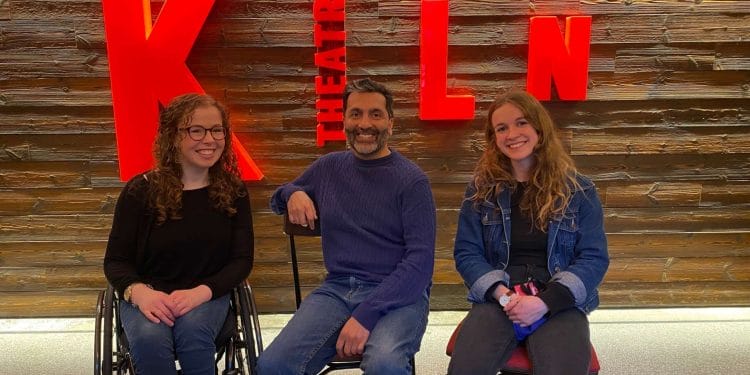Kiln Theatre’s Artistic Director Indhu Rubasingham today announces new appointments to the theatre’s core artistic team – Amit Sharma as Associate Director, Amy Trigg as the Peggy Ramsay Foundation / Film4 Awards Scheme Playwright, and Pip Terry as Kiln’s new Resident Assistant Designer.
Rubasingham said today, “I am deeply thrilled that Amit Sharma is joining as Associate Director – the wealth of knowledge, experience and talent he will bring to the organisation will be invaluable and instrumental to strengthening Kiln’s mission to bring unheard/ignored voices into the mainstream. After her brilliant debut play, Reasons You should(n’t) Love Me reopened our theatre back in May 2021, we are deeply privileged that Amy Trigg wanted to join us as our Peggy Ramsay Foundation / Film4 Awards Scheme Playwright on attachment. Pip Terry also joins as our second Resident Assistant Designer supported by Backstage Trust. Alongside Tom Wright our New Work Associate and Tom Piper our Associate Designer, we are very fortunate to have this group of artists to challenge, provoke and inspire us as well as advocate for freelancers right at the heart of Kiln Theatre.”
Theatre and television director Amit Sharma joins as Associate Director, having recently directed the critically acclaimed The Boy with Two Hearts at the Wales Millennium Centre; and his new film Then Barbara Met Alan, written by Jack Thorne and starring Arthur Hughes and Ruth Madeley will air on BBC2 from 21 March.
Following the sold-out run of her award-winning debut Reasons You Should(n’t) Love Me at Kiln Theatre in May 2021, Amy Trigg joins the team as the Peggy Ramsay Foundation / Film4 Awards Scheme Playwright and has been specially commissioned to write a piece for the Kiln stage.
Associate Designer Tom Piper will also continue to nurture the next generation of designers, this year inviting Pip Terry to join as Kiln’s second Resident Assistant Designer. As part of our post-Covid reopening, in 2021 Kiln created our new Backstage Designer Residencies scheme which seeks to have a real impact both on the relationship between creative freelancers and building-based organisations, and on the lack of accessible pathways into theatre design careers. With this paid training opportunity, Kiln is piloting Universal Basic Income-type support for early career theatre designers.

















